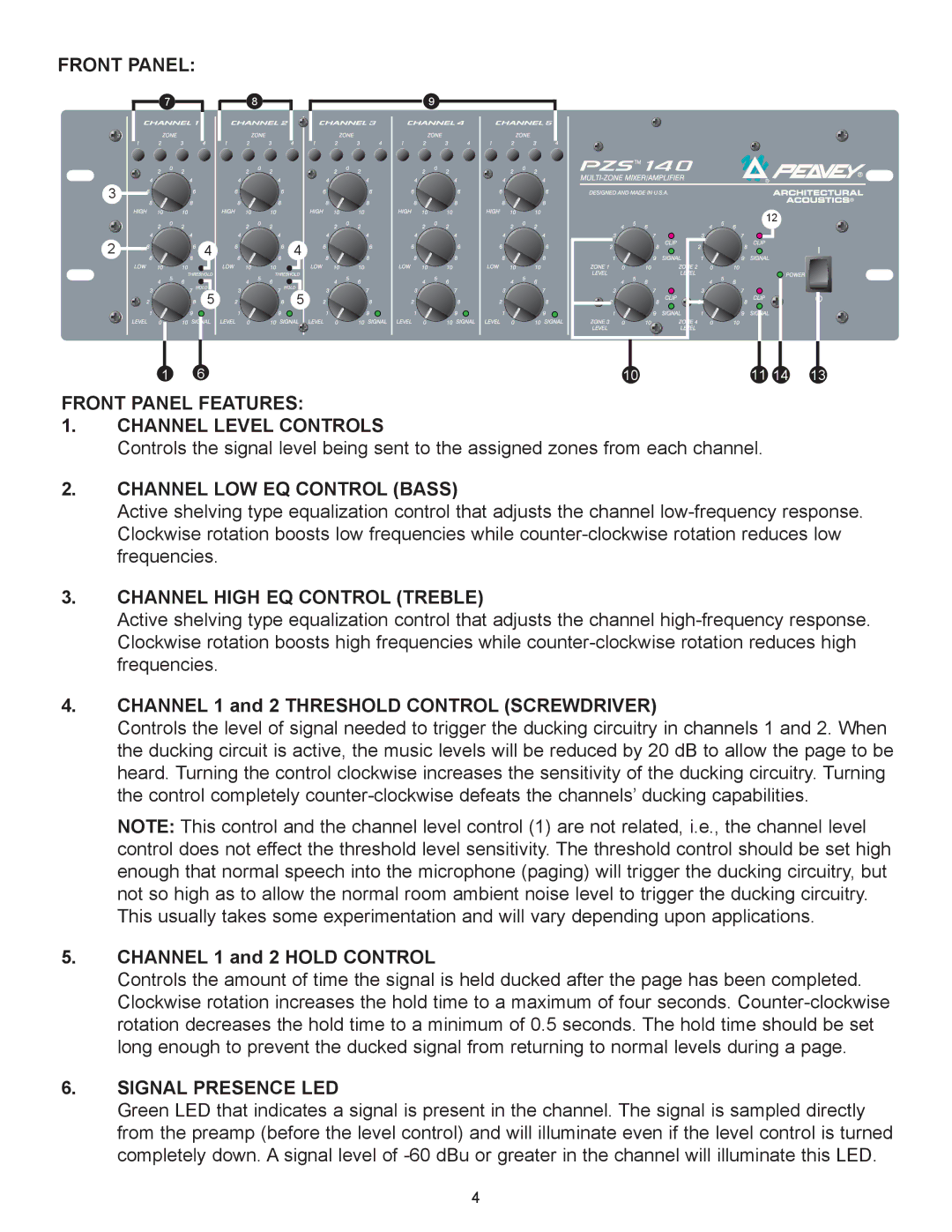
FRONT PANEL:
7
8
9
3
2
4
5
16
4
5
12
10 | 11 14 | 13 |
FRONT PANEL FEATURES:
1.CHANNEL LEVEL CONTROLS
Controls the signal level being sent to the assigned zones from each channel.
2.CHANNEL LOW EQ CONTROL (BASS)
Active shelving type equalization control that adjusts the channel
3.CHANNEL HIGH EQ CONTROL (TREBLE)
Active shelving type equalization control that adjusts the channel
4.CHANNEL 1 and 2 THRESHOLD CONTROL (SCREWDRIVER)
Controls the level of signal needed to trigger the ducking circuitry in channels 1 and 2. When the ducking circuit is active, the music levels will be reduced by 20 dB to allow the page to be heard. Turning the control clockwise increases the sensitivity of the ducking circuitry. Turning the control completely
NOTE: This control and the channel level control (1) are not related, i.e., the channel level control does not effect the threshold level sensitivity. The threshold control should be set high enough that normal speech into the microphone (paging) will trigger the ducking circuitry, but not so high as to allow the normal room ambient noise level to trigger the ducking circuitry. This usually takes some experimentation and will vary depending upon applications.
5.CHANNEL 1 and 2 HOLD CONTROL
Controls the amount of time the signal is held ducked after the page has been completed. Clockwise rotation increases the hold time to a maximum of four seconds.
6.SIGNAL PRESENCE LED
Green LED that indicates a signal is present in the channel. The signal is sampled directly from the preamp (before the level control) and will illuminate even if the level control is turned completely down. A signal level of
4
